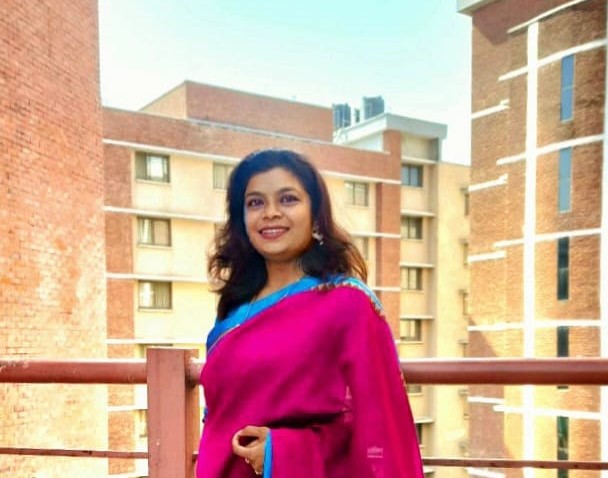Sessions Details
Understanding consciousness through the lens of Indian knowledge Systems

Prof. Pooja Gupta
About Speaker:
Dr. Pooja Gupta, Associate Professor at the School of Liberal Arts, ILLM University, India. She has a background in Science and holds a Ph.D. in English literature with fifteen years of teaching and research experience. She is passionate about cutting-edge teaching strategies, developing outcome based curriculum outcome-based curricula and courses that encompass topics including communication, critical thinking, ethics, and language proficiency reading literature, writing and translation studies. Dr. Gupta has a solid research background, has presented over 15 research papers at national and international conferences, published 13 research papers in international journals and also published 3 books by international publishers. She has also demonstrated leadership and teamwork abilities while creating learner-centric courses and acquired honors at state and national levels. On the topics of life skills and consciousness studies, Dr. Gupta has hosted workshops and faculty development initiatives sponsored by AICTE and Govt. of India. For undergraduate students, she has created. She has been working in the areas of Translation and Cultural studies of the Himalayan Literature, Indian Knowledge Systems, especially focusing on Consciousness Studies with Vedic literature perspective.
About Session:
Study of mind and consciousness is often difficult due to the observed -observer dichotomy. Cartesian approach of dualism has been questioned by oriental schools of Yoga and Vedanta as well as the recent Quantum theory of modern physics.
Consciousness has been described as the “Ultimate Mystery” in ancient Indian texts, and its study is acclaimed as the highest science. However, inspite of science and technological advances and investigations, the question of consciousness is considered to lie outside its scope. Consequently, the references in the Indian texts to consciousness have not been examined for their significance to the history of science in India. But before any account of the models related to consciousness can be developed, it is essential to understand their scientific significance and separate what can be correlated with the emerging insights of cognitive science from the more speculative philosophical and spiritual thought. Scientific attitudes towards consciousness have changed due to the recent advances in neurophysiology and because modern physics and computer science are confronted with the question of the nature of the observer. In many ways, the study of consciousness is centre-stage in the discussions of modern science. On the other hand, a considerable part of Indian thought is devoted to the question of consciousness.
This special session calls for papers dealing with explorative studies of the concept of consciousness (prajna) through the lens of Indian philosophies and knowledge systems, and also attempts to draw parallels and contradictions with modern/quantum physics. This call for papers focuses on the explanations about knowledge domains in the traditions and their distinctive features, different connotations, and denotations of consciousness, the different methods being used in explaining consciousness. The current scientific analyses of consciousness from the stand point of theoretical and quantum physics are discussed here and compared with the concept of consciousness in the Indian philosophical traditions.
Important Information:
Kindly submit your extended abstract at: ppgupta24@gmail.com
Word limit for extended abstracts: 1000 words (up to 3 pages including tables and figures and excluding references)
Deadlines :
| Last date for extended abstracts submission | 2 October 2023 |
|---|---|
| Announcement of the accepted abstracts | 20 October 2023 |
Every submission will be reviewed by at least two researchers in this field. As per the guidelines of the organizing team of MBCC-2023, we will select around 6 articles for presentation in this special session of MBCC-2023 at IIT Mandi.
Contact:
Dr. Pooja Gupta(ppgupta24@gmail.com/8979459311)